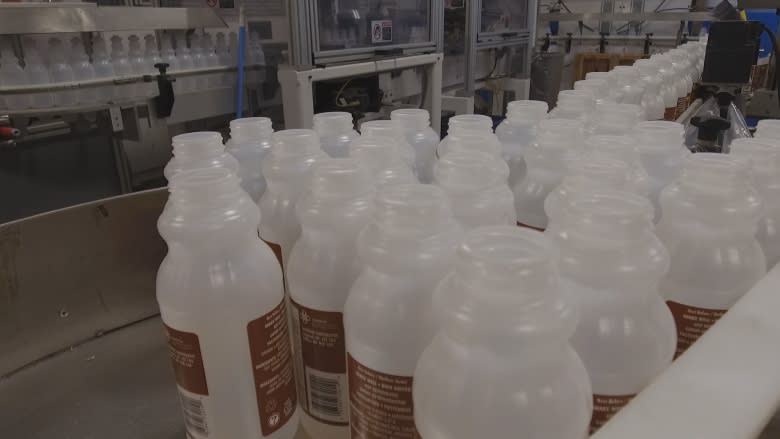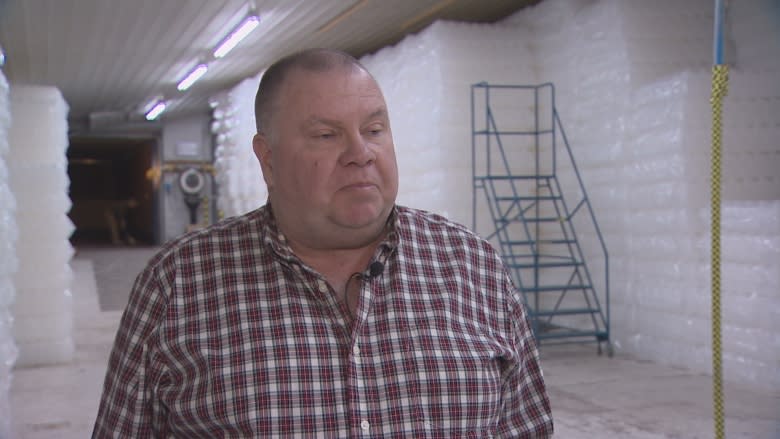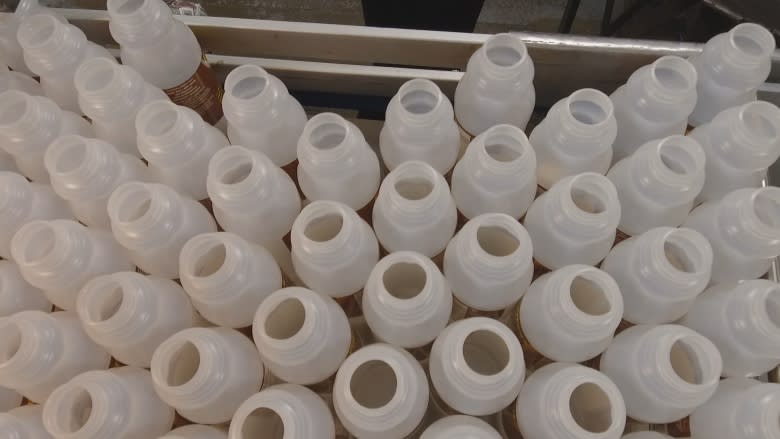Dirty plastic means Nova Scotia manufacturer must import clean material from Ontario
The co-owner of a manufacturing plant in Shubenacadie, N.S., says his business has to import recycled plastic from outside of the province because there is no washing facility closer to home.
Scotia Plastics makes up to 20 million milk and water containers every year, along with 600,000 metres of drainage pipe.
It uses new material to create the drink containers, but most of the pipes contain recycled number 2 plastic brought in mainly from Ontario.
"Right now there isn't a suitable product made in the province for us to use," said Bruce Phinney, who bought the plant 11 years ago.
Phinney said a washing facility for recycled plastic could encourage the creation of new businesses in Nova Scotia.
Not enough plastic
However, an official with Divert Nova Scotia — a provincial recycling agency that handles beverage containers — told CBC News in an email the idea of a washing facility for that particular type of plastic has been discussed over the years but not enough of it is produced in the province to make one financially viable.
The most recent statistics from the Halifax region show the municipality collected 3,730 tonnes of various plastics between April 1, 2015 and March 31, 2016.
The Environment Department said approximately 850 tonnes of number 2 plastic — usually opaque plastic that's picked up at curbside — is collected every year by municipal recycling programs across the province.
It's not clear how much would be needed to get a washing facility up and running.
Nicole Haverkort is a coordinator for the Eastern Region Solid Waste Management. She agrees it would be "great to find a local solution" and private companies may invest in such a system if producers are made responsible for recycling the packaging used by their products.
Facility would have challenges
Divert Nova Scotia told CBC News in an email the idea has been discussed over the years but because of the volume issues, it has never been pursued any further.
With "current pricing for plastic commodities at historic lows, it is even more of a challenge," the agency said.
Tiffany Chase, a spokeswoman for the Halifax region, said the province's largest municipality has never considered a washing facility because its recycling contractor is responsible for collecting the plastic and finding buyers for the material.
Phinney thinks a centrally located regional washing facility for the Maritimes should be considered, and not just for economic reasons.
"Environmentally, it would be good ... if all the plastic we try to recycle here, stayed here and was used here, " said Phinney.
"Instead of shipping it somewhere else and who knows what is done with it."










